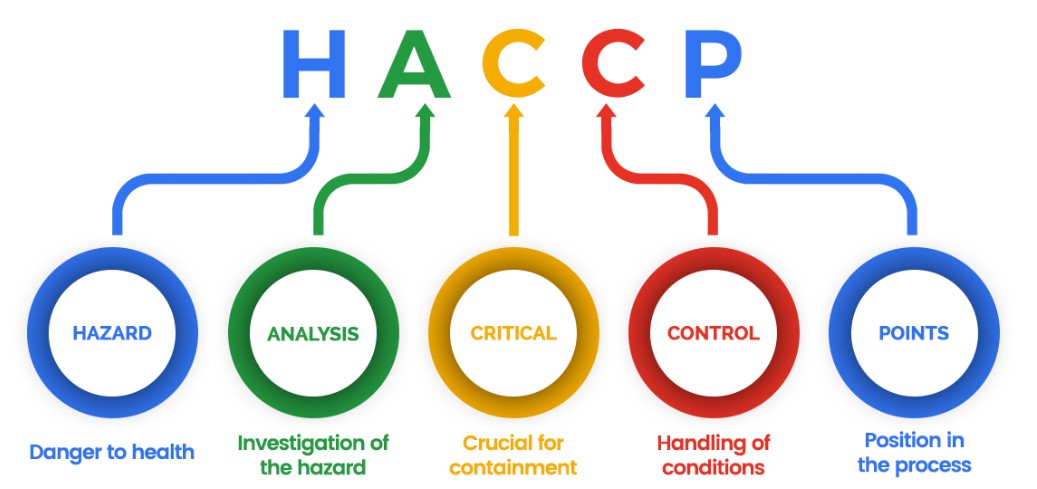HACCP Certification: Your Key to Food Safety Compliance in Dublin, Cork, Galway, and Across Ireland
The safety of food products is a paramount concern for businesses across Ireland, and implementing a robust food safety management system is essential. This is where HACCP (Hazard Analysis and Critical Control Points) training comes into play. In this blog post, we will explore the importance of HACCP training for food safety compliance, focusing on key cities such as Dublin, Cork, Galway, Limerick, Waterford, and Belfast.
What is HACCP?
HACCP stands for Hazard Analysis and Critical Control Points, a systematic approach to identifying, evaluating, and controlling food safety hazards. The fundamental purpose of HACCP is to prevent food contamination that could lead to foodborne illnesses.
HACCP Principles
The HACCP system is built around seven key principles:
- Conduct Hazard Analysis: Identify potential hazards that could affect food safety.
- Determine Critical Control Points (CCPs): Find out where risks can be minimized or eliminated.
- Establish Critical Limits: Set limits to ensure CCPs are controlled.
- Establish Monitoring Procedures: Monitor CCPs to ensure they stay within limits.
- Establish Corrective Actions: Define actions to take when monitoring shows a deviation.
- Establish Verification Procedures: Verify that HACCP systems are working effectively.
- Establish Record-Keeping and Documentation: Keep comprehensive records to demonstrate compliance.
HACCP Training Benefits
HACCP training offers numerous advantages for businesses in Dublin, Cork, Galway, Limerick, Waterford, and Belfast. Here are some key benefits:
- Compliance with Regulations: HACCP certification ensures you meet the food safety regulations imposed by both Irish and EU law.
- Public Health Protection: By adhering to HACCP guidelines, businesses play a crucial role in safeguarding public health.
- Risk Mitigation: Implementation of HACCP helps in identifying and controlling hazards, significantly reducing risks of foodborne illnesses.
- Enhanced Reputation: Compliance with HACCP standards enhances customer confidence and business reputation.
- Operational Efficiency: The systematic approach of HACCP leads to better operational efficiency and staff training.
How to Get HACCP Certified
Obtaining HACCP certification involves a structured approach:
- Enroll in a HACCP Training Course: Many institutions offer HACCP training courses, both online and in-person.
- Complete the Training Program: Participate in the course and gain knowledge about the HACCP principles.
- Prepare for the Certification Exam: Depending on the course, an exam may be required to demonstrate your understanding.
- Apply for Certification: Once you pass, apply for HACCP certification through a recognized certifying body.
- Maintain Your Certification: Ensure regular updates and audits to stay compliant.
Online vs. In-Person HACCP Training
With the growing demand for flexibility, many businesses choose online HACCP training. Here are some points to consider:
- Convenience: Online training allows participants to learn at their own pace and schedule.
- Accessibility: Access from anywhere in Ireland, making it easier for busy professionals.
- Cost-Effective: Often, online courses are more affordable than in-person training options.
Common HACCP Violations and Prevention
Even with training, some violations may occur. To avoid common mistakes, businesses should:
- Regularly review and update HACCP plans.
- Conduct routine training for all staff members.
- Ensure proper documentation and record-keeping.
Conclusion
HACCP training is not just a requirement but a vital component in ensuring food safety compliance in Ireland. From Dublin's bustling restaurants to Cork's catering businesses, understanding and implementing the HACCP principles is crucial.
Don’t wait for a food safety incident to occur; ensure your business is equipped with the knowledge and certification needed for compliance. Enroll in a HACCP training course today!
Contact Us: For more information about HACCP training programs, email us at [email protected] or visit our HACCP training course page.



 349,500 Offered Certificates
349,500 Offered Certificates
 24/7 Online Training
24/7 Online Training
 Money Back Guarantee
Money Back Guarantee
 Fully Accredited Courses
Fully Accredited Courses
